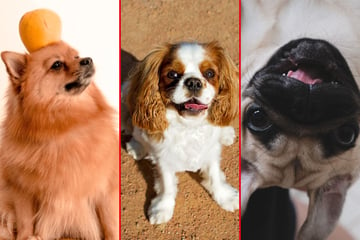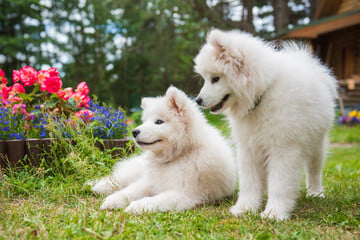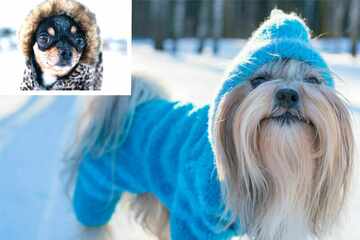How to calm down overly excited dog greetings
It's only natural for your darling doggo to get a little overexcited when you come home after a long day at work. Still, it can be pretty overwhelming sometimes, so how do you get it a bit more under control?
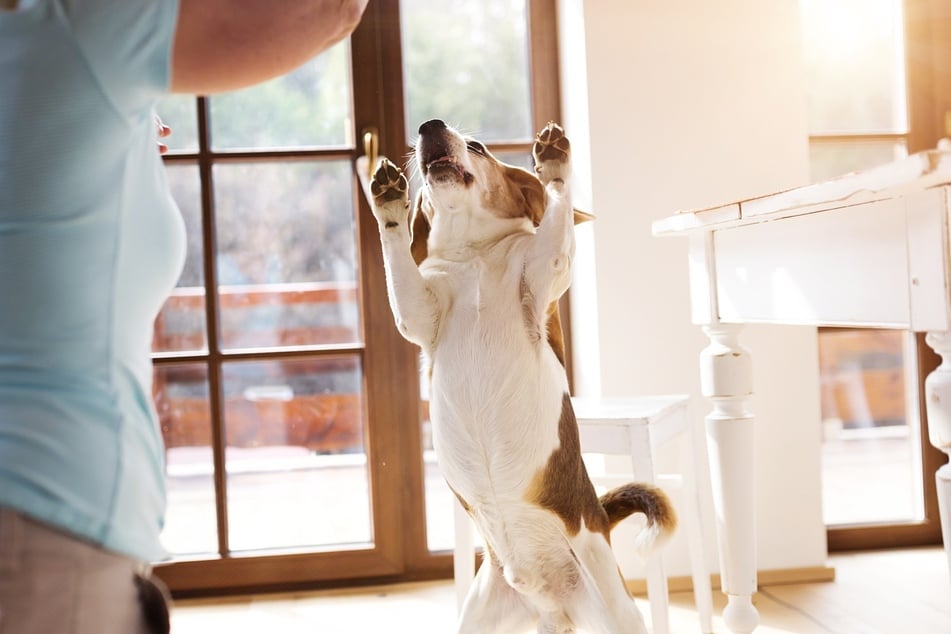
When visitors are expected, or you're just not in the mood for exuberant greetings after suffering through a long and tedious day at work, an overexcited dog can quickly become a burden. Yet, you don't want to grow to resent your pup, so what can you do to reduce its extreme greetings, lessen those emotions, and make things a little calmer at home?
In this dog guide, TAG24 will take a look at how to calm down an overly excited dog. When you get home and your dog goes berserk, what can you do to keep it calm and, hopefully, train it out of this exhausting behavior? Let's take a look.
My dog gets too excited when I come home: Why?
There are many different explanations for why your dog reacts the way that it does when you wander in through the door. It's been home alone for hours, after all, so that combination of separation anxiety and love could in itself be enough of an explanation. Still, it goes deeper than just that.
This might be why your dog gets overexcited when you get home:
- Joy: Your dog may simply be happy and excited to see its favorite person again. Its reaction is simply an inability to contain its jubilance.
- Playfulness: Your four-legged friend may have been bored throughout the day and is now in a good mood to play. Its unrestrained behavior boils up and becomes overwhelming.
- Behavior correction: If you leave your dog alone too often and for too long, you can expect a stormy greeting. This is not necessarily joy but dissatisfaction with life and the absence of its owner. What may seem like excitement is actually reproach.
- Frustration: If a dog is frustrated because it is bored alone at home, feeling lonely or even abandoned, then the excitement may simply be compensation for inner tension.
- Restlessness and stress: As soon as dogs get stressed and restless inside, their behavior and discipline deteriorate. Possible reasons for this can be both physical (hunger, thirst, pain) and mental (boredom, fear, etc.).
- Jealousy: If your dog is part of a bigger family of pets, or if you perhaps have newborn children, then it may be jealous of the increased attention that is being taken away from it. This can then manifest in poor behavior.
- Trained behavior: Have you been giving your doggo a treat and cuddle as soon as you get home despite its bad behavior? This is positive reinforcement and could explain why it has become a habit.
Your dog is not likely to be unmanageable, even if it does jump up and down a little too much when you come home. The most important thing you can do is identify the reason for its behavior and take steps to address the root cause.
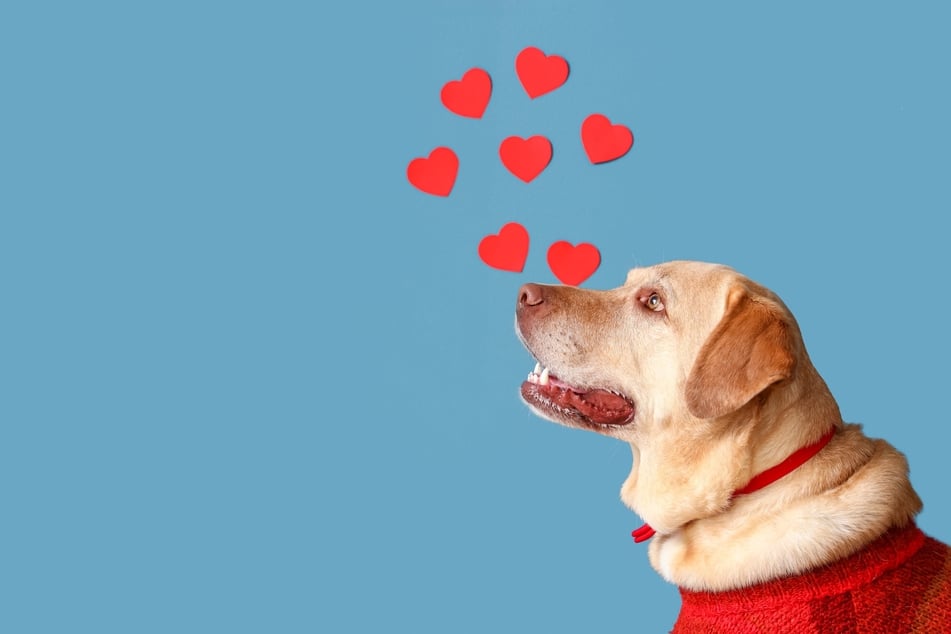
How to calm down dog greetings
Dogs love to greet their owners, and, for the most part, that desire to be up close and personal is out of affection and care. They want to be close to you; they want your approval – after all, you're the head of the pack! Still, such exuberance is not always acceptable, and if your dog is constantly jumping all over you when you get home, it's time to introduce better discipline.
These four steps are simple and easy and will quickly help to reduce overexcited dog greetings. Follow them carefully, but if you have more serious issues, make sure to take your doggo to the veterinarian.
1. Avoid positive reinforcement
Whatever you do, don't positively reinforce bad behavior in your dog. In much the same way as you use said reinforcement to teach your dog all sorts of commands and words, by positively reinforcing this overly excited behavior, you are teaching your dog to do it every time you walk in the door.
If your beloved doggo is trying to get something out of you and succeeds, then it will repeat those behaviors in an effort to repeat the treat. As a result, your best bet is to provide your dog with no sense of achievement or success when it displays overly excited and overwhelming behavior when you come home.
Instead of giving it a pat and going straight for the food bowl, simply ignore your dog for a while. If it has already been taught, through positive reinforcement, to behave badly, this behavior can be reversed through negative or neutral reinforcement. Do not punish your dog; just ignore it.
Here are a few ways to avoid positive reinforcement when you get home:
- Immediately put your dog on a lead and make it stay where it is while you go about your business.
- Turn away, facing your back to the dog and keeping your hands totally out of reach.
- Ignore your dog and, instead, go about your business like it isn't there.
It may sound harsh, but with a little bit of consistency, you'll have melted the bad behavior right out of your dog. You just need to have a little bit of persistence and self control.
2. Make the dog sit and stay
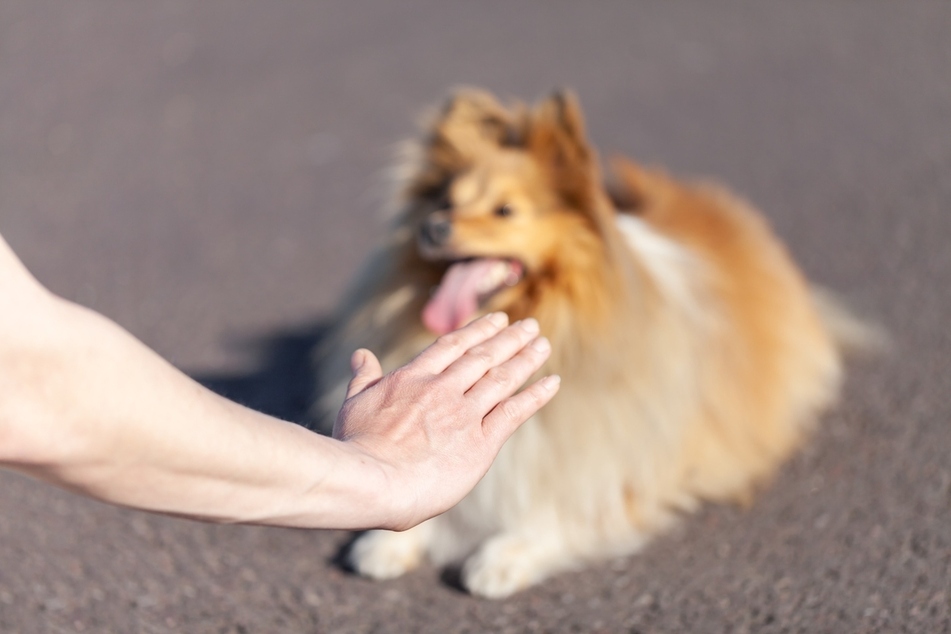
If you have not started teaching your dog words and commands, it's time to start now. The best way to control your dog and keep it disciplined is through training, and the best kind of training is verbal. You want to make it so that when you enter the house and your dog runs up, you can say, "Sit," and the dog will sit.
There are a variety of different commands that you can teach them to stop this behavior. Things like "Stop," "Sit," and "Wait" come to mind. It's worth also knowing that if your doggo is being especially exuberant, one way to stop them in the moment is to grab their paws when they jump up – they don't like this very much and will likely drop back down to the ground.
Again, words and commands are a great reinforcement technique. If you constantly make your dog sit when you come home, it will learn to do exactly that.
3. Create a new ritual
Creating a distraction every time you come in the door might seem troublesome, but it's not as hard as you think. Again, what you want to do is habitualise a different behavior. For example, if whenever you come in, you sit down on the floor and give your dog a belly rub instead of letting it jump up, then it will be more likely to roll over when you come home.
Such a behavior is clearly more manageable, but it doesn't even need to be this specific suggestion. As soon as you change your greeting ritual, it will start to change and adapt to that new behavior. Be careful not to reinforce the bad behavior, of course, like giving pets when your dog has been jumping all over you. Instead, think about how you can establish a new routine.
Ultimately, you want your dog to stop jumping up onto you (and your guests), and you want it to stop barking. By introducing a new ritual, you will teach out the bad and reinforce the good.
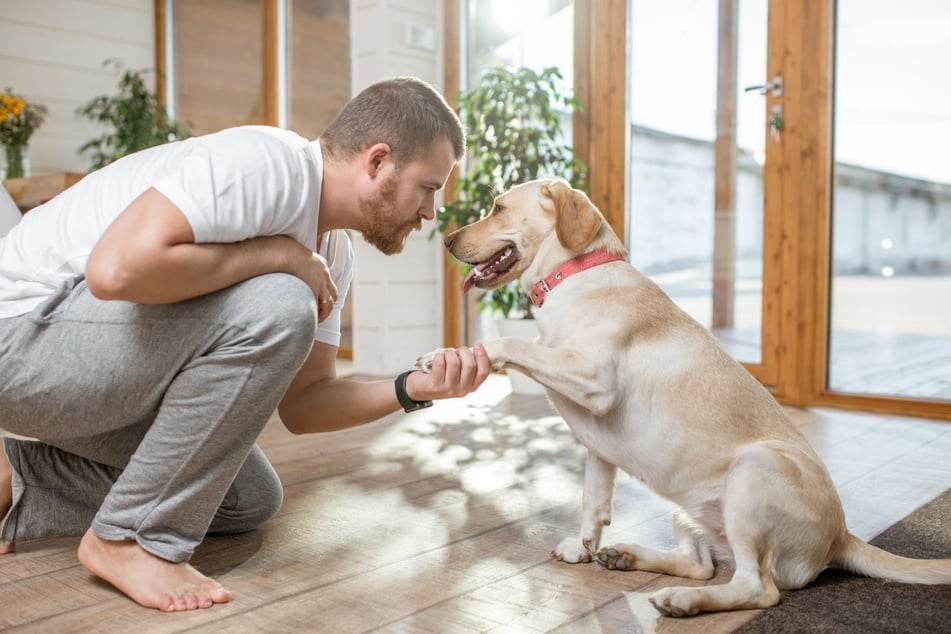
4. Reward the dog for correct behavior
Finally, we come to the subject of rewards. Now, this is a difficult one, and there's one rule that should always be followed: don't over-treat your doggo. You don't want to introduce food-related health problems because you have been providing too many snacks. Instead, you want to use the treats sparingly.
Used in conjunction with the previous methods, once your dog has started behaving correctly you could think about rewarding it for just that. Instead of positively reinforcing the bad behavior, you start positively reinforcing the good behavior and, therefore, incentivizing it.
If your dog rolls over instead of barking and jumping, give it a pat and a treat. If it jumps up and behaves badly, don't give it a treat. It's not rocket science!
Overexcited dog greetings can be exhausting, but there's an answer
By making sure that your doggo is being rewarded for the correct behavior but not for the wrong behavior, is well-trained, and is on the path to learning a new greeting ritual, you should be able to solve your overexcited dog problem. Simply remember that there are a variety of reasons why your dog might get hyperactive, and your first step should be to determine that reason.
Whatever you do, though, try to remain a responsible dog owner. If your darling doggo is behaving particularly badly, take it to the vet and see if you can get professional dog behavioral treatment, and certainly avoid disciplining your dog in a severe or violent way – it's just not on!
Cover photo: 123RF/halfpoint

